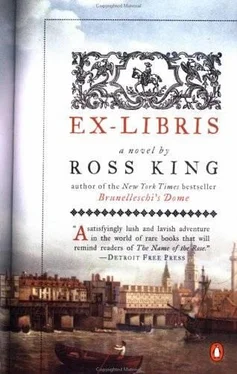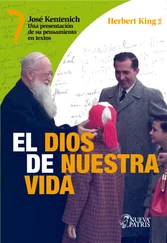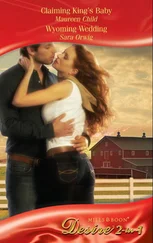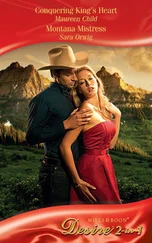But there would be no siege, the ambassadors were assuring the Queen, nor even a war. Prague was safe. The Imperial Army was still eight miles away and Frederick's troops, all twenty-five thousand of them, were poised to block their advance. English troops were on their way, as were the Dutch, and Buckingham, the Lord High Admiral, was outfitting a fleet of ships to attack the Spaniards. Besides, winter was arriving, one of them observed as he leaned forward on his elbows and picked at his teeth with the tines of a fork. No general would be so uncivilised as to fight a war in winter, especially in Bohemia. Not even the papists, he assured the company, would be so barbaric.
But of course the ambassadors had been wrong about the Catholic armies, just as they would be wrong about King James and Buckingham's fleet of ships. The dirty plates had not even been cleared from the table and the scraps fought over by the servants before the first cannon-ball soared over the crest of the Summer Palace, just five miles distant, and skidded into the woods. The Imperial artillery had come within range of the White Mountain. The first barrage rattled the frosty air, crackling and bursting like an oncoming storm, startling the horses in their stables and sending the townsfolk scurrying home.
By that time Emilia had returned to her room on the top floor of the palace and begun tying her hood over her head, preparing for her last desperate foray into Golden Lane. Her thoughts had not been about the Imperial soldiers, those vast armies supposedly on their way to humble Bohemia and reclaim for Ferdinand the throne stolen by Frederick and Elizabeth. She was thinking about Vilém instead, and so it had taken several more explosions before she realised the sound was not that of thunder or ice breaking apart on the Vltava.
What happened next she was able to watch through the lens of a telescope, an instrument from the Spanish Rooms that Vilém had taught her to use only a fortnight earlier. The battle had begun at the Summer Palace, where the Bohemian soldiers were entrenched behind earthworks. Fog was creeping upwards from the hollows and into the game park so that only one of the palace's outbuildings could be seen, alight with petals of flame. Her hands trembled as she held the instrument to the window. Smoke was lolling upwards through the collapsed roof of the building, an exotic flower coloured mallow and orange with each burst of cannon-fire. Then one of the explosions lit the Bohemian soldiers as they fled downwards, zigzagging through the trees, leaving behind their tumbrels and gun-carriages. Further above, the first of the enemy troops-a squadron of pikemen and musketeers-reached the breastworks.
She left the palace by the back stairs less than an hour later. On the landings she pushed past clutches of kitchen-maids wailing about the invading Cossacks, then made her way into the courtyard. By this time dusk had fallen and the first of the fleeing Bohemian soldiers reached the gates. From the palace courtyard she heard their angry shouts as they pleaded with the sentries, then the sound of the gates scraping open. Some of the men had discarded their weapons-flails and sickles-others were dragging them like exhausted workers returning from a day in the fields. They were ill-fed and, with their grubby buff coats and dented breastplates, looked more like tinkers than soldiers. She dodged between them as they stumbled in their dozens across the cobbles. Then she hitched up her skirts and ran north towards Golden Lane, her path lit by explosions.
The houses in Golden Lane were dark at that hour, every last one of them. Their occupants must have fled along with dozens of others from the castle. A few days earlier, when the Imperial Army reached Rakovník, the English and Palatine counsellors had decamped with their families and possessions. Had Vilém fled with them? Had he abandoned her? She knocked again on the door, this time more forcefully, but still there was no reply. Had he even abandoned his books?
The sky was still on fire a few minutes later when, after she could see no sign even of Jirí, she made her way back towards the Královsky Palace. By this time the gates to the Powder Bridge were swinging shut amid much shouting. The Queen's coach had been summoned and now stood at the ready in the palace courtyard. The drum-fire had drawn closer, and she could hear the bark of guns as the musketeers gave fire, then fell back in their ranks to reload for another bloody enfilade. Teams of horses were dragging long culverins and stubby mortars across the brow of the mountain, pulling their carriages into place for the next bombardment. She ducked her head and ran towards the Spanish Rooms, frost crunching underfoot.
The library stood in the line of fire, the windows on its west side overlooking the dark hulk of the White Mountain, which in the twilight resembled a huge crouching beast. The thousands of books were housed in the deepest recesses of the Spanish Rooms, so she first had to pick her way through the labyrinth of galleries devoted to Rudolf's other treasures, dozens of bejewelled, glass-faced cabinets that with their bizarre curiosities-the horns of unicorns, the teeth and jawbones of dragons-looked like the reliquaries of a mad priest. Except that in the past few days most of the rooms had been emptied of their cabinets, or else the cabinets of their contents. Only a few stuffed animals and reptiles could be seen hunched in lifelike postures behind their panes of glass. But the scores of mechanical clocks were missing, as were the priceless scientific instruments-the astrolabes, the pendulums, the telescopes-that Vilém had demonstrated for her a few weeks earlier. As were the paintings, the urns, the suits of armour…
She was not surprised by this desolation, having tiptoed into the Spanish Rooms two nights earlier and seen the rooms emptied of their contents. There had been no sign of Vilém then either, he seemed to have vanished along with everything else. Only Otakar remained. She had discovered him sitting on a half-filled crate of books, a bottle of wine overturned on the floor beside him. He had been weeping and was so drunk he could barely keep his head erect or his eyes open. Most of the treasures, he explained through his hiccups, were being sent away.
'For safekeeping,' he told her, rising unsteadily to his feet and sloppily refilling his cup from a second bottle, which had also been purloined from the royal wine cellar. 'Lock, stock and barrel. The King is worried that his treasures will fall into the soldiers' hands or, even worse, into those of the Emperor Ferdinand.'
'What do you mean? Where have they been sent?'
The two of them had been standing beside Vilém's desk, which for once had been cleared of its huge stack of uncatalogued books. The shelves, to her astonishment, had also been cleared of most of their books. Otakar's voice echoed against the bare walls as he spoke. He had no idea where the crates had been sent but was full of gloomy prophecies that the wine prompted him to impart. He appeared to regard the invasion of Bohemia as a personal affront, its purpose nothing other than the desecration of the library. Did she know, he asked, that in the year 1600, when Ferdinand was Archduke of Styria, he had burned all of the Protestant books in his domains, including more than 10,000 volumes in the city of Graz alone? And so now that he was Emperor he would make it his business to incinerate all of the books in Prague as well. Because every ruler celebrated his conquests by setting torch to the nearest library. Did not Julius Caesar incinerate the scrolls in the great library at Alexandria during his campaign against the republicans in Africa? Or General Stilicho, leader of the Vandals, order the burning of the Sibylline prophecies in Rome? His slurred syllables had reverberated in the empty room. Emilia had made to go, but a clumsy hand grasping at her forearm stayed her. There was nothing so dangerous to a king or an emperor, he went on, as a book. Yes, a great library-a library as magnificent as this one-was a dangerous arsenal, one that kings and emperors feared more than the greatest army or magazine. Not a single volume from the Spanish Rooms would survive, he swore, sniffling into his cup. No, no, not a single scrap would escape the holocaust!
Читать дальше












